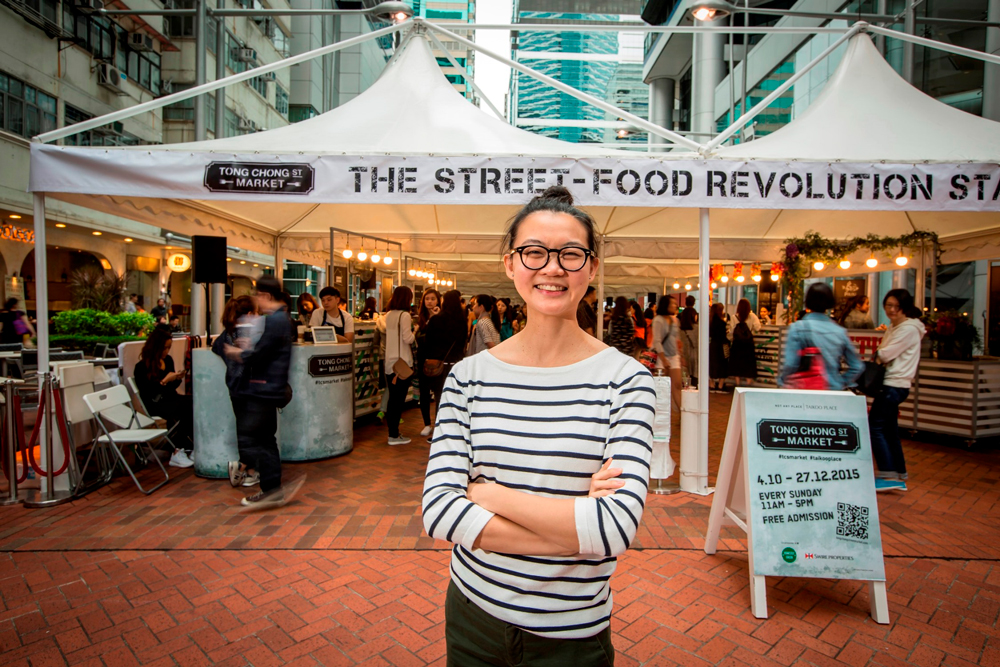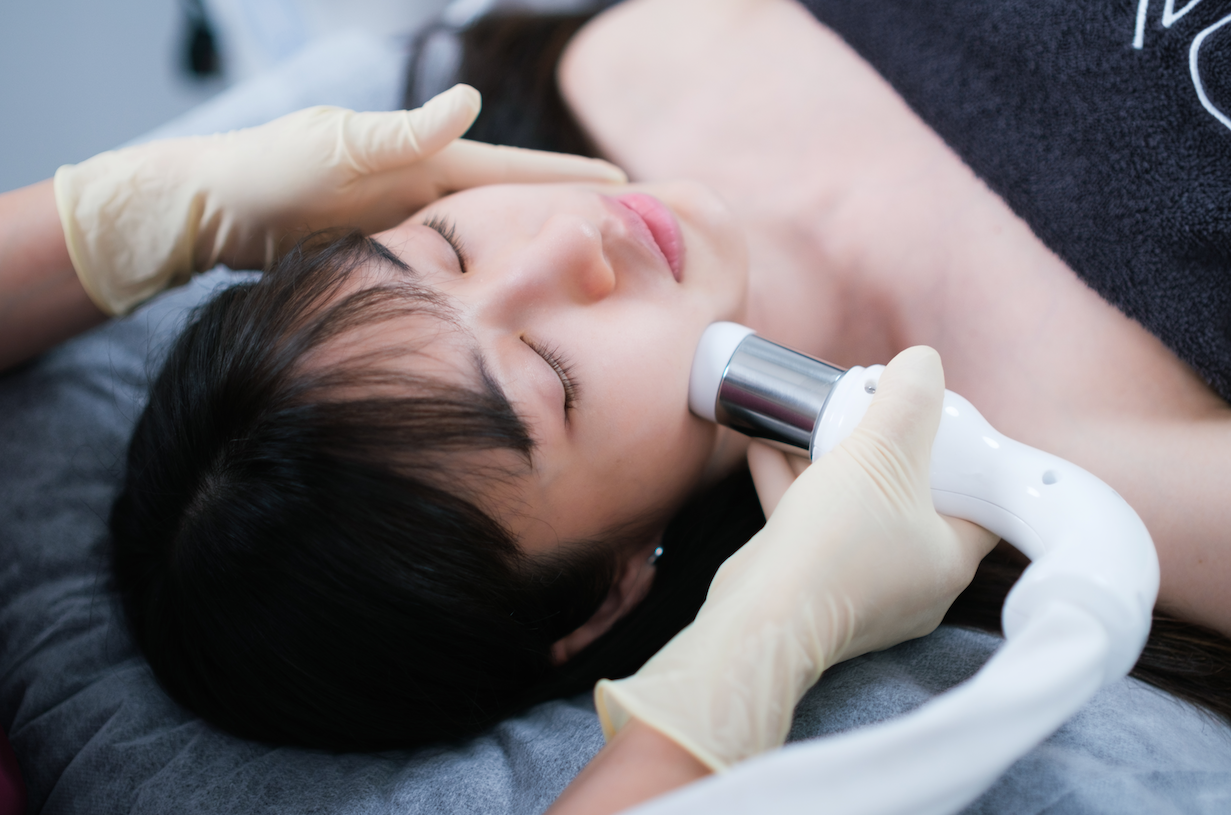
Janice Leung Hayes may not be a familiar face, but she should be a familiar name. The Hong Kong-Australian, also known by her handle @e_ting, is one of Hong Kong’s most respected food journalists and bloggers. She is loved by chefs and foodies alike for her astute criticism, clear commentary and inherent understanding of, and passion for, food culture. She is also a leading figure in the locally-sourced movement, founding the Tong Chong Street Market, Island East Markets and the soon-to-launch PoHo Market, in addition to her company Honestly Green. Fiercely motivated and independent, this former ballerina’s goal is to slow Hong Kong down, and remind the city of what truly matters: community and integrity. In the second instalment of The Future is Female she talks to #legend about inspiration, gender and food regulations.
You’re a prominent food journalist, but has that always been your passion?
Not at all. I didn’t become interested in food until I moved back to Melbourne by myself as a teenager. Soon I found myself eager to read the weekly food section in the newspaper. It made me wonder how people could wax lyrical about “just food” and I decided to try my hand at imitating restaurant reviews. I started to eat at the places reviewed and write my take on it. Around this time, blogs began to become available, and I put my writing online, not thinking anyone would read it. One day, strangers started commenting.
What inspired you to start the Tong Chong Street Market and Island East Markets?
You could say it was for purely selfish reasons that I started the markets – I just wanted to buy vegetables directly from local farmers. I also thought that if I, a person whose job it is to write about food, didn’t know there were good farmers in Hong Kong, how would the rest of the public know? And once they did know, where would they buy the produce? A market was just the most straightforward, no-nonsense solution.
How do you feel they benefit the community?
I think markets are a great platform for budding entrepreneurs, and they especially make sense in a high-rent city like Hong Kong. I’m super proud when I see people who debut at our markets move into real spaces and get the recognition they deserve – Little Bao is one example, May Chow was there quite literally on day one – and more recently, Angel of Sweetpea Patisserie has just opened her first café. For shoppers, markets are a great way to meet the makers and producers. I believe that the less interested, less invested we are in the act of selecting what we buy, the less producers will care about what they’re making and selling.
Can you expand on that last point?
The problem is clear when you look at industrialised food – a cancer in the food system – made by faceless corporations who couldn’t care less because we, as consumers, don’t care either. People think that eating “organic” or sustainably is an act of privilege, but it’s our role as the “privileged” to make properly-produced food the norm, because the costs of a broken food system are things that taxpayers will end up having to pay for anyway – public health issues, environmental destruction, the lack of resources.
What is the state of local farms at the moment? Are they flourishing or struggling to keep up with mass producers?
Recognition for local farmers is slowly growing. Wet market stalls, health food stores, online shops and even specialty supermarkets are stocking local produce. But there are several challenges – typhoons and other erratic weather, for instance. It’s a high-risk industry that’s difficult to scale, and the fluctuations in supply can be difficult for traditional retail suppliers to handle. Nonetheless, these problems are gradually being solved somehow, but this is a city where the agricultural policy is to get rid of agriculture. It’s hard to rely on market forces when the forces are mostly against you.
Are there less pesticides and chemicals on local produce?
Allow me to define some of these common terms while answering the question – I’m a firm believer in consumer education – only with the right information can we make the right choices. The first thing to note is that none of these are legal terms in Hong Kong. “Local” in terms of produce mostly means grown in Hong Kong, but what method the farmer uses is their choice. For packaged products, “local” can mean processed in Hong Kong from imported ingredients, or from local ingredients. “Organic” often doesn’t mean pesticide-free. What it does mean is that it’s free of “synthetic pesticides,” which actually may be less harmful to us and the planet than high-dose applications of “natural” pesticides. It’s also worth noting that “local” does not necessarily lower one’s carbon footprint, however I do believe in buying local for the betterment of the economy and community I live in.
Where are some of the best places in the city for people to go to support local industries?
Markets, of course! And not just Tong Chong Street Market – the “made in HK” scene is gaining momentum and buying it directly from the maker ensures they get a better margin. I also like online shops like ztore.com, jousun.com and organetmall.com for local farm produce.
Any advice for timid cooks to incorporate some of the lesser-known ingredients into their cooking?
Ask farmers how they recommend eating it, or just bite into it—I’m known for just stuffing raw vegetables and herbs from the farmer’s table right into my mouth. Taste it, feel the texture and qualities in your mouth and you’ll instantly get an idea of how to use it. Add new-to-you herbs to a salad, they’ll brighten it up instantly. Take a photo of it and ask around! Instagram it, WhatsApp it to your friends – someone somewhere will have a hot tip for you!
How do you feel about the concept of, ‘the future is female’?
The future waits for no-one, regardless of gender. In today’s world, gender is a fluid concept anyway. Instead of thinking about our differences and reasons for divide, why not think about our similarities and how to work together?
Who are the women that have inspired you throughout your life?
No doubt I got my “never take no for an answer” work ethic from my mother, but otherwise, I’m constantly inspired by the smallest of things every day; anything that makes my work more effective and purposeful. More recently, I guess Misty Copeland, principal dancer of the American Ballet Theatre, has been a source of inspiration. Her constant appearance in the media has reminded me of the strength and discipline that ballet offers, which encouraged me to rediscover and reconsider the role of purposeful physical movement.
Do you rely on a female network? If so, how?
Not in any formal way. I was very humbled to have received a Women of Hope award back in 2014, and its network of award recipients continues to be a source of inspiration. I get a lot of my energy from interesting, inspiring ideas, and the people behind them – sorry to be such a cliché, but good ideas know no gender!





